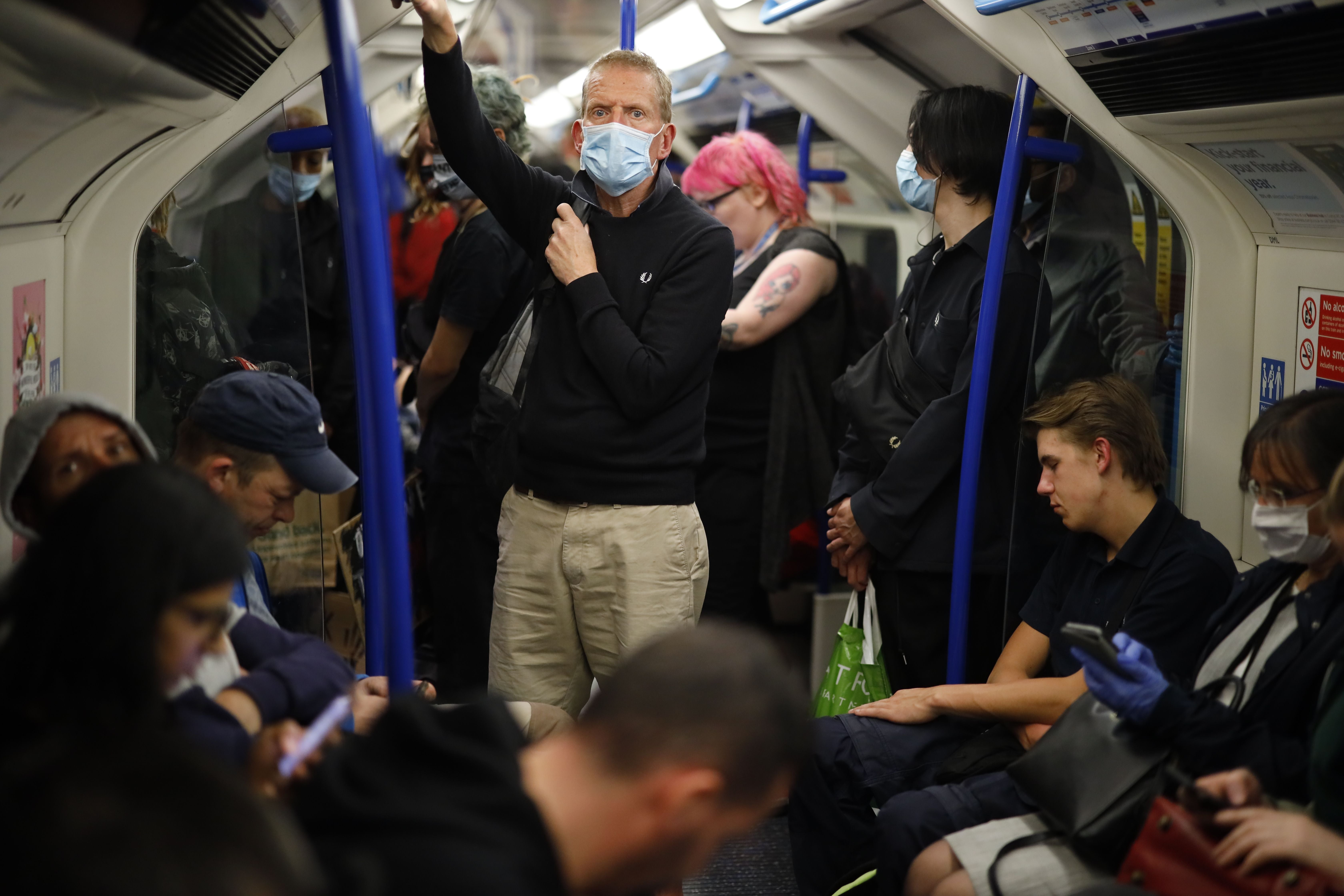Long Covid cannot be ignored – it’s vital we determine its true scale in society
Analysis: More than ever, good and considered science is needed to bring clarity to an issue that is only set to grow with the passing of time

In the eyes of many, the pandemic is drawing to a close. Cases and hospitalisations are falling across the UK, immunity levels are rising, and the normalities of life we once knew are slowly returning.
But for a seemingly invisible minority, the fallout from Covid-19 continues to cast a dark shadow. Out of sight of the rest of society, these are the individuals who remain plagued by fatigue, shortness of breath, brain fog, and other debilitating symptoms.
The horrors of the acute phase of the pandemic are unlikely to be forgotten, yet the same cannot be said for those suffering from long Covid. As society looks to the future, they fear being left behind.
One of the most pressing challenges for health officials is determining the scale and burden of the syndrome. Estimates of its prevalence, especially in children, can vary considerably from one study to another – complicated by the loose or strict definitions of long Covid and its associated symptoms.
Research published by the Office for National Statistics (ONS) suggests that close to a million people in the UK are living with long Covid. Imperial College London puts this figure at 2 million, for England alone. And data from the Zoe Covid Study app, which has fallen under heavy methodological scrutiny in recent days, estimates that 4.4 per cent of infected children will struggle with symptoms for up to a month.
A clearer picture on the prevalence of the syndrome is desperately needed to help shape future health policy on support programmes, treatments, funding, education, and the rollout of vaccines among children.
For the NHS in particular, the burden of long Covid – if larger than feared – could prove to be devastating. The ONS estimates that some 380,000 people have been living with the syndrome for a year, with a further 600,000 or so suffering from the condition for less time. It’s unclear how the NHS intends to assess, treat and support these individuals moving forward, with its dedicated long-Covid clinics already in high demand.
One of the first steps in bringing clarity to long Covid is establishing how exactly we define it – a challenge in itself. Symptoms can range from the neurological to the physical, manifesting in a number of different ways and shaped by the patient’s initial experience of Covid. Those who are hospitalised with the disease will typically suffer a greater fallout – though this isn’t always the case.
There are certainly clusters of symptoms which help to distinguish the different categories of long-Covid sufferers, but there will always be outliers who prove an exception to the rule. For experts exploring the condition, the focus must be on the patients and their individual experiences in order to capture irregularities and improve the design and outcome of the research.
Indeed, studies can be limited by the questions they do and don’t ask. Some will enquire about neurocognitive disorders that patients may be experiencing – insomnia, loss of short-term memory, the inability to concentrate – while others will neglect to include them. As for establishing whether symptoms such as these are even the result of infection, especially in the context of a pandemic that has impacted mental wellbeing, the power of scientists is somewhat limited.
Questions will undoubtedly be asked about the impact of symptoms on the undertaking of day-to-day activities – a subjective exercise that will return hugely different results from one person to another, even if they are reporting the same symptoms.
The circumstances of those being asked the questions will also shape the outcome of the research. Obesity, smoking or vaping, hospitalisation and deprivation are all associated with a higher probability of persistent symptoms, research has shown. If individuals from these groups are underrepresented in a self-reporting study, it’s likely the incidence of long Covid will be distorted.
“Almost all studies vary in their case definition, inclusion and exclusion criteria, and their findings reflect the fact that they are measuring different things,” says Dr Elaine Maxwell, a scientific adviser at the National Institute for Health Research (NIHR).
Determining the endpoint for long Covid is another key consideration for researchers. The relapsing and unremitting nature of the syndrome – with people appearing to recover, only to suffer from another onset of symptoms weeks later – means the findings of certain studies can be compromised.
In the case of the recent Lancet paper that drew its data from the Zoe Covid app, children with a week-long gap in their symptoms were deemed to have recovered from long Covid, meaning any further relapses would have been missed and excluded from the final results. Other studies are more cognisant of the ebbs and flows of the condition, but the fact that a person’s symptoms can return without warning makes it far harder to measure the incidence of the condition.
“Making bold statements from a single study is therefore inadvisable,” says Dr Maxwell. “It is important to be open-minded, without scaremongering, because we don’t know what we don’t know.”
Evidently, the challenges facing those attempting to decipher long Covid are great and many. As has been the case throughout the pandemic, there are no clear answers to hand. More than ever, good and considered science is needed to bring clarity to an issue that is only set to grow with the passing of time.
Join our commenting forum
Join thought-provoking conversations, follow other Independent readers and see their replies
Comments